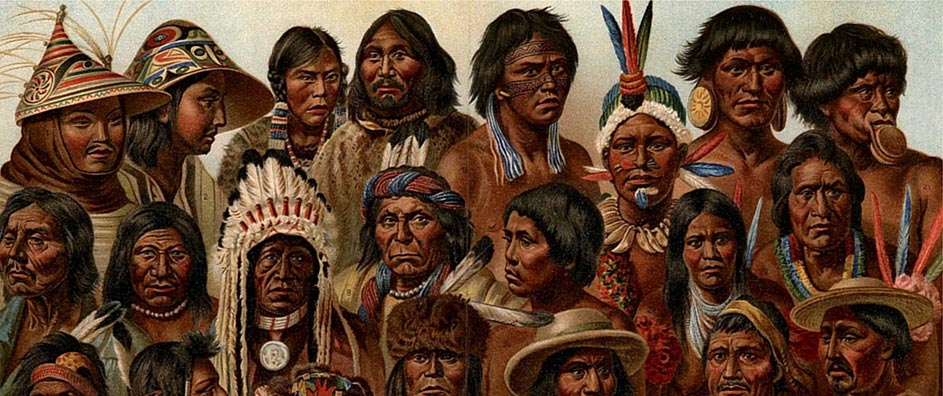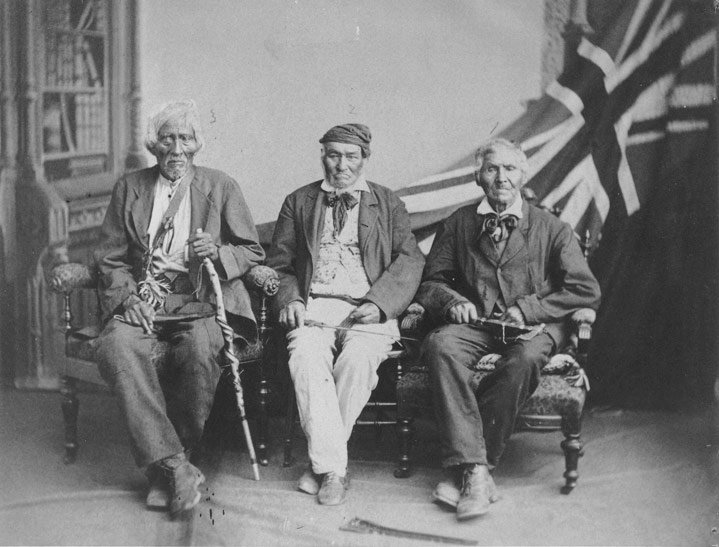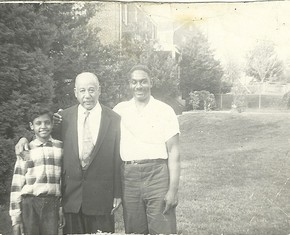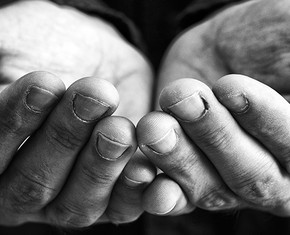The views expressed in our content reflect individual perspectives and do not represent the authoritative views of the Baha'i Faith.
Halito! (Choctaw for “Hello!”)
Many people think of the United States Constitution as the “world’s oldest living constitution.” But the first democracy in the New World used an even earlier constitution. No career politician founded this historic democracy. It was founded by what anthropologists call a “culture hero” — or, according to Iroquois sacred tradition, by a Messenger of the Great Spirit.
The Iroquois tribes practiced this time-honored democracy religiously — quite literally, because they consider this way of governing sacred. It is still alive, albeit in attenuated form, among Iroquois Nations today.
You can feel an epic sense of legendary drama in reading Concerning the League, by John Arthur Gibson (translated from the original Onondaga by Hanni Woodbury in 1992). This is no ordinary book. It covers the founding of the Iroquois Confederacy by Deganawida — respectfully and reverently referred to as “the Peacemaker” — with the assistance of Hiawatha, the former cannibal, whom Deganawida converted to his new faith.
Legends are historically rooted and culturally bound. As such, Deganawida is not an ethnographic curiosity, but a living, cultural presence. The great overmastering fact in the history of the Iroquois is the dominance and centrality of the “Longhouse” tradition based upon the Deganawida epic. In that way, Concerning the League compares favorably with the sacred scripture of the world’s great religions and, as such, belongs to the pantheon of great world literature.
The Iroquois Confederacy began as the union of five Iroquois Nations, to which a sixth was later added. It eventually included a total of ten Nations at later points in history. The Iroquois league of Nations first united the Mohawks, Onondagas, and Senecas (as “Elder brothers”) and the Oneidas and Cayugas (as “Younger Brothers”) into the “Five Nations.”
In 1714, the Five Nations became Six Nations by adopting the Tuscaroras, and, in 1753, the Confederacy incorporated the Nanticokes and Tuteloes, expanding the League into eight Nations. Evidence tells us that the Saponi and Conoy Nations were added later, enlarging the League into ten Nations, with the Delawares being given Iroquois protection, but without formal adoption.
While his teachings on good governance have long been studied, Deganawida’s ethical and spiritual teachings have received scant attention. In the previous article, we began a comparison of the ethical teachings of “Two Peacemakers,” Baha’u’llah and Deganawida. We will continue that comparison and see how much the teachings of these two Peacemakers really do have in common.
In ethical advice given to one of his sons, one of Baha’u’llah counsels this:
“Be worthy of the trust of thy neighbor, and look upon him with a bright and friendly face.”
We don’t have to look far to find comparable ethics in the teachings of the Peacemaker:
Thirdly, this is what ‘Peace’ means: now it will stop, the massacre of humans and the scalping and bloodletting among themselves, specifically, among the people of the various nations. Now as to that, it will end, the human slaughter, because the Great Spirit never planned for humans to hurt one another nor to slaughter one another. So now it will end, the warpath, and everywhere it will become peaceful; the different nations’ villages are as neighbours and as to the localized families and their children, what will happen is that they all will be very close relatives; and it will come to pass that they will become just like one family which will encompass every nation and every language. And this: when everyone can travel from village to village, then it will end, the danger and terror, and everything will be peaceful, and they will rejoice by day and by night as the family continues on, there being no end to peace; that is what it means, the Great Law of Peace, and everyone will be united; now I am finished. – Deganawida, Concerning the League, pp. 105–108.
You will stop it because it is sinful for people to hurt one another; you especially, for you are all relatives, and so it is necessary for you to be kind to one another, as well as to other people, those you know, and those people you do not know; and you should respect them equally—all of the people—you should be kind to everyone.” — Deganawida, Concerning the League, pp. 27–28.
No question about it — these ethical teachings are on a par with the great religions of the world.
On March 9, 1961, the late Ruhiyyih Khanum (a.k.a. May Maxwell), prominent Canadian Baha’i and beloved wife of Shoghi Effendi, wrote:
“I could see the American Indians straighten their shoulders when I asked their forgiveness for the injustices my race had done them and when I praised their great past.” – Letter to the United States and Canada on Racism, 1961
Let’s follow Ruhiyyih Khanum’s example and do likewise.* Yakoke! (Choctaw for “Thanks!”)
- For a historic apology to Native Americans that also made history, please see:
©2014 by Christopher Buck.
You May Also Like
Comments


















The constitution of the Great Law also appears to call for the forceful imposition of the Great Law on other nations.
WAMPUM #88
"THE GREAT PEACE URGED ON FOREIGN NATIONS BY PERSUASION OR BY FORCE
When the proposition to establish the Great Peace is made to a foreign nation, it shall be done in mutual council. The foreign nation is to be persuaded by reason and urged to come into the Great Peace. If the Five Nations fail to get the consent of the nation at the first council, a second council shall be held and upon a ...second failure; a third council shall be held and this third council shall end the peaceful methods of persuasion. At the third council, the War Chief of the Five Nations shall address the chief of the foreign nation and request him three times to accept the Great Peace. If refusal steadfastly follows, the War Chief shall let the bunch of white lake shells drop from his outstretched hand to the ground and shall bound quickly forward and club, the offending chief to death. War shall thereby be declared and the War Chief shall have his warriors to back any emergency. War must continue until the contest is won by the Five Nations."
Are we cherry picking what we like out of the teachings of the Peacemaker or is there another rationale for this article within the constitution? This article was used, it would appear, to cause a great deal of strife and outright war between the 5 Nations Confederacy and other First Nations.
The application of this edict is apparent when I look at the history of New France as recorded by the Jesuits and others in the 17th century.